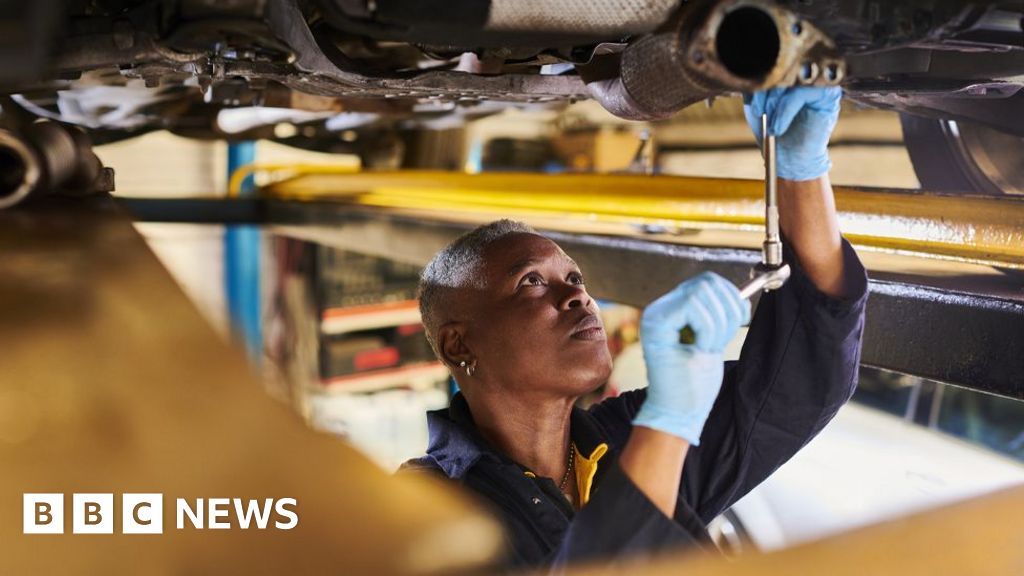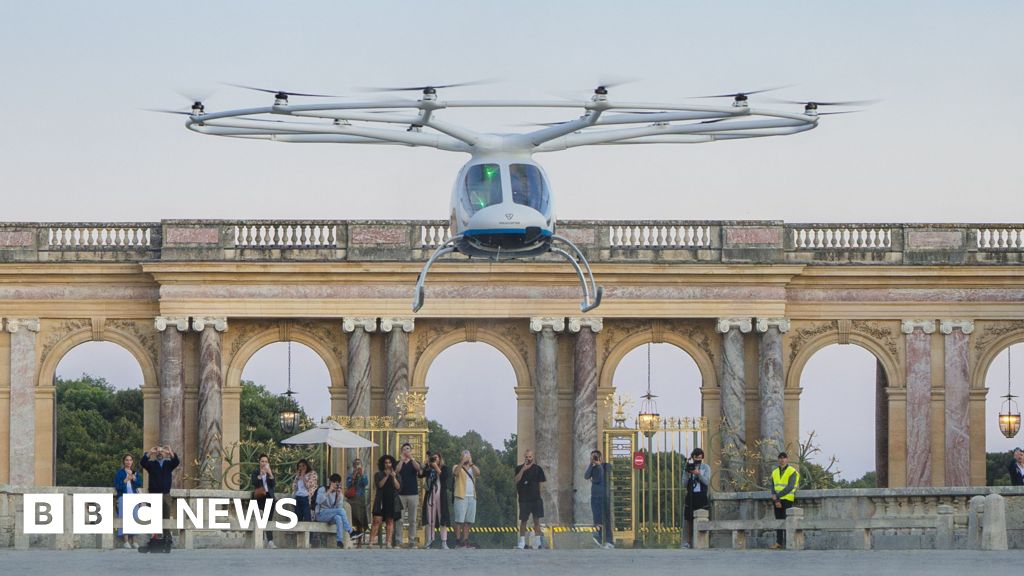ARTICLE AD BOX
BBC global trade correspondent Chris Morris investigates why Covid has disrupted shipping patterns across the world - and how that affected our Christmas presents this year.
On a misty morning just before Christmas, a shipping container finally arrived at a warehouse in Leeds - seven weeks late.
It was shipped from Ningbo in China, carrying toys and games.
Other containers expected before Christmas won't arrive until January.
As supply chains around the world battle with the impact of the Covid pandemic, businesses are facing frustrating delays as they struggle to meet consumer demand.
To make matters worse, the cost of global shipping has risen dramatically this year.
It is good news for shipping companies - who are estimated to make record profits of $150bn (£113bn) this year, according to maritime consultancy Drewry. But it is an extra burden for many other businesses.
Out of kilter
Boxer Gifts is a family-run Leeds-based firm which develops and designs games and seasonal presents, and this is their busiest time of year.
Nearly all their stock is manufactured in China. That helps keep consumer prices down and container deliveries used to be incredibly reliable. But not this year.
"Now 95% of them are at least a week late," says Thomas O'Brien, Boxer Gifts' managing director.
"The container that arrived today, it was delayed three weeks getting out of China. It was delayed another month on the sea. For a seasonal business, this is stock that people can't buy until the last minute."
The trouble is there aren't enough empty containers in China to meet the demand for sending goods around the world.
The empties are in the wrong places, stuck in other ports thousands of miles away, with no ships available to pick them up.
Covid shutdowns and delays have put global supply chains out of kilter.
After a difficult year in 2020, retailers tried to get stock in early. But that surge in demand, coupled with a shortage of ships and containers in the right place at the right time, simply made the situation worse.
For much of the year, there have been dozens of ships anchored off ports in California, waiting to be unloaded. European ports have also been under huge pressure.
It was clear shipping was sensitive to unexpected shocks. The Evergiven, the ship that blocked the Suez Canal for six days in March, caused massive backlogs.
But it's Covid that has done the real damage.
"Container lines are run like train lines, they have schedules, and they are meant to call at fixed times and for fixed durations," says Michelle Wiese Bockmann, markets editor of the shipping journal Lloyd's List.
"And that's just not happening, because they can't."
Soaring costs
The result is that the short-term cost of sending freight from Asia to Europe has risen by 366% this year, Ms Bockmann says.
And longer-term rates, locked in 12 months in advance, have gone up even more. A container that might have cost about $4,000 to send from Asia to Europe now costs about $20,000.
That's why the shipping lines that carry containers are on course to make vast record profits this year.
"Rates should be falling off or hitting a plateau at this time of year," Ms Bockman says. "But we're not seeing that, we're still seeing them climb up, slowly but surely."
Ports are working longer hours to keep trade moving, while more ships are on order to try to cope with the demand - but it will take time for things to settle down.
"We have moved to almost constant 24/7 working in the big locations, we have added more capacity and hired more people," Tim Morris, chief executive of the UK Major Ports Group, told a recent UK parliamentary committee hearing.
"But there is obviously a lot of disruption worldwide, and what that means is the regularity and predictability of vessel arrivals has basically gone out of the window."
That in turn puts huge pressure on ports and on land-based freight-forwarders, if three ships suddenly arrive when they are expecting one.
Other issues, such as the aftermath of Brexit in the UK, and the shortage of HGV drivers, have added to pressure on the system.
Vulnerabilities in supply
The industry hopes the shipping delays are temporary, but they are expected to stretch well into 2022 and possibly beyond.
Perhaps it's not surprising that the huge disruption caused by Covid-19 has exposed vulnerabilities in global supply chains. In some ways, they've held up remarkably well, given the scale of the pandemic.
But it's been a reminder of how dependent we've all become on getting shipping containers delivered around the world on schedule.
One alternative option is to increase local production. They're starting to do a bit of that at Boxer Gifts in Leeds by making jigsaw puzzles locally.
But don't expect globalisation to retreat any time soon. This is still a hyper-connected world.
And now Omicron is creating more challenges for the supply chains we take for granted.

 2 years ago
25
2 years ago
25








 English (US)
English (US)